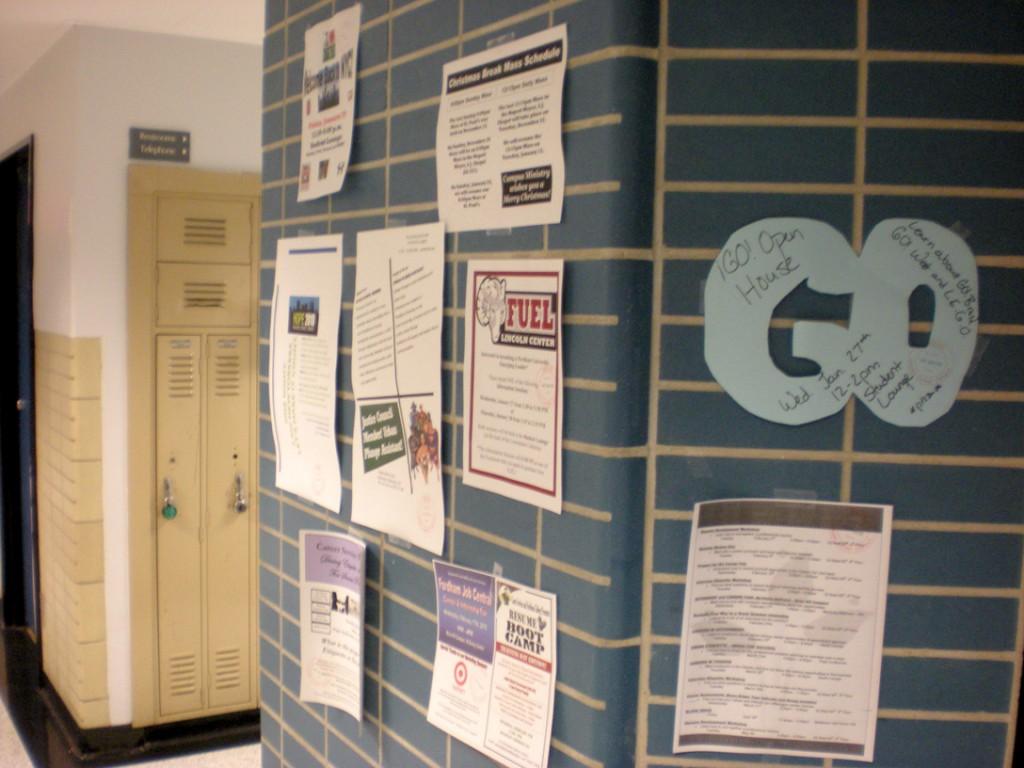Forced Friends: SABC Co-Sponsorship
June 28, 2011

Published February 4, 2010
The Student Activities Budget Committee (SABC) at Fordham College at Lincoln Center (FCLC) has begun a new initiative this year: encouraging co-sponsorship among the various clubs. Perhaps these forced friendships are being chalked up to something like teamwork, but I think we can all agree it’s probably a money-saving measure. And in that case, its efforts beg the question: isn’t less programming the opposite of what students here need?
The fact is, clubs aren’t getting what they need. For instance, during the fall semester, Students for Solidarity had a pre-approved meeting room, but it was always locked during the club’s scheduled meeting time, causing long delays, impromptu relocation and undue frustration. If Fordham cannot guarantee all student clubs a weekly meeting room, it seems unfair to ask for further compromise. It is already tedious enough to try to plan an event through Fordham; co-sponsoring will simply cause more frustration and reduce the already few events held on campus.
Student groups reflect student interests and ideas. They are formed to give the student body multiple distinct and unique voices on campus. Despite occasional minor overlaps, each group is quite different from every other group. Why then is Fordham asking them to bend and shape their interests and ideas to fit in with other student groups? Collaboration can be good, certainly, but forcing clubs to get involved with other organizations that don’t necessarily share the same goals can be counterproductive.
These efforts may stimulate club interaction, but they also muddle club identities. Upon the creation of a club, founders must first draft a mission statement describing its purpose. That purpose has to be unique from other, pre-existing clubs in order to avoid overlap. The mission statement has to be reflected in the clubs’ events. If all clubs are required to co-sponsor the same events with one another, what is the purpose of having multiple clubs with distinct mission statements?
Student groups are essential for a traditional and well-rounded liberal arts education. The main issue with SABC pushing clubs to co-sponsor is that it forces groups to bend and shape their events to fit in with other student group ideas. Some club members now try to think of ways to get other clubs involved with their events before they even know what events they want to hold. This could ultimately lead to club fusion, allowing fewer distinct voices to be heard on campus. There is nothing wrong with co-sponsoring if the clubs in question want to do it, but student groups should not feel that they have to have co-sponsors for every event they hold because SABC suggests that they do. Club events do not need to be planned to coincide with the views of other clubs on campus.
Fordham may be trying to be on par with other New York universities like Columbia, NYU and Barnard, but the university doesn’t interact with its students the way other universities do. For instance, they do not personally ask clubs to co-sponsor or get flyers pre-approved. Student groups elsewhere are, more or less, allowed to host and advertise events without bureaucratic pre-approval and stressed co-sponsorship. Sure, room reservations might be in order, but not the same mind-numbing attention to detail for each step of the process.
Dialogue between clubs is important, but forced co-sponsorship is not the only way to encourage dialogue. Hosting your own event and inviting other clubs to attend is a better way to create a more vocal student body on campus, rather than dividing budgets. Many students at FCLC already feel that there is not enough on campus to be involved in, and by limiting potential programming on campus through co-sponsorship, SABC is further isolating the student body from having an audible voice here at Fordham.











